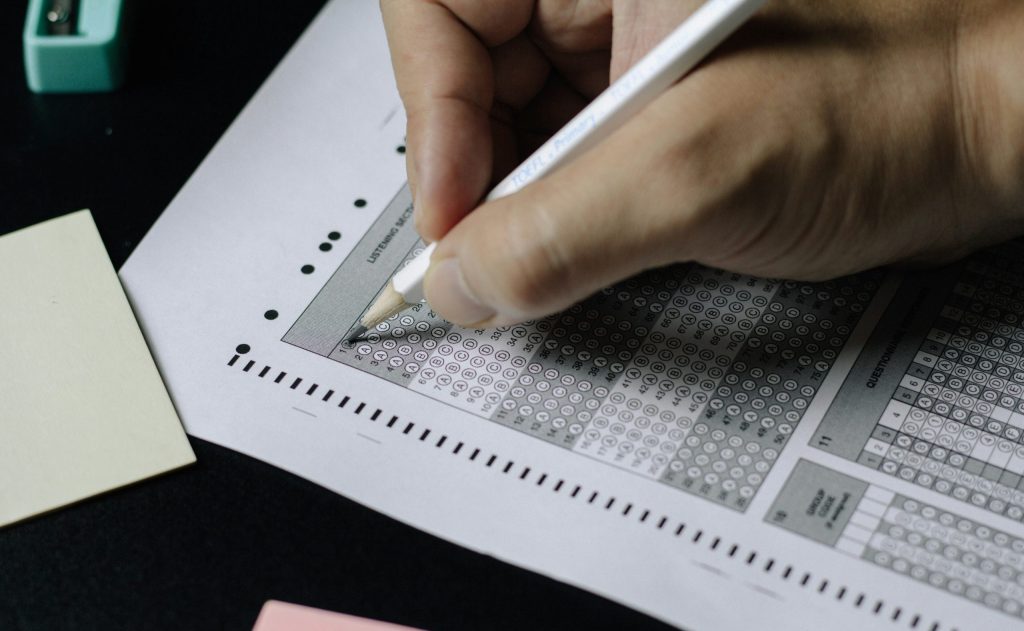 Nguyen Dang Hoang Nhu, Unsplash
Nguyen Dang Hoang Nhu, Unsplash Tomorrow, the UNC Board of Governors’ Committee on Educational Planning will be asked to vote on a proposed revision to its “Policy on Minimum Eligibility Requirements for Undergraduate Admission for the University of North Carolina System.” Specifically, the committee will vote on changes to the System’s standardized-testing requirements. Sadly, most schools would see very little effect from this policy.
Since 2020, the UNC System has operated under a testing waiver. The System website states, “Students will have the option to submit an ACT or SAT test score, but test scores will not be required for admission decisions. Those who do not submit a standardized test score will need to meet the minimum weighted GPA of 2.5 to be considered for undergraduate admission.”
The proposed policy would be a de facto extension of the testing waiver. If the BOG takes no action, the waiver is set to expire in 2024. That would mean a return to previous practice, which required all UNC applicants to submit a standardized test score. To be eligible for admission, students had to present a GPA of 2.5 or “a composite ACT score of 19, or combined SAT (mathematics and evidence-based reading and writing) of 1010.”
In contrast, the proposed policy would require only a small percentage of students to submit standardized test scores. At most schools, then, it is a de facto extension of the testing waiver. The new policy specifies, “Students with a weighted high school GPA greater than or equal to 2.50 and less than 2.80 are required to submit a standardized test score (ACT or SAT). For students with a weighted high school GPA of 2.80 or above, the decision to require submission of a standardized test score is delegated to the chancellor of each constituent institution, subject to the approval of their board of trustees.”
As the table shows, most UNC institutions already admit very few students whose GPAs are less than 2.80.
Beginning in 2026, applicants with weighted high-school GPAs less than 2.8 “[would be] required to submit a standardized test score of 17 or higher on the ACT or a 930 or higher on the SAT to be eligible for admission.”
Because of rampant grade inflation in high school, as well as changes to the SAT making it easier, these minimum requirements are too low. Under such a policy, many students would be admitted who are unprepared to succeed in college.
As AEI’s Rick Hess recently documented, grade inflation is a serious problem in high schools across the country. A GPA of 2.5 is now well below average.
Between 2010 and 2022, there was evidence of steady grade inflation among high schoolers. During that period, even as the National Assessment of Educational Progress (the “Nation’s Report Card”) recorded steady declines in reading, math, and U.S. history achievement, student GPAs climbed steadily higher. The average adjusted GPA increased from 3.17 to 3.39 in English; from 3.02 to 3.32 in math; from 3.28 to 3.46 in social studies; and from 3.12 to 3.36 in science. In 2022, more than 89% of high schoolers received an A or a B in math, English, social studies, and science.
This problem is compounded by setting the standardized test score minimums for these already-below-average students too low. Across all subjects, the ACT’s average college readiness benchmark is 21.25. The ACT explains that “students who meet a Benchmark on the ACT … have approximately a 50 percent chance of earning a B or better and approximately a 75 percent chance of earning a C or better in the corresponding college course or courses.”
Moreover, the new policy would make the System’s most competitive schools—UNC-Chapel Hill and NCSU—effectively test optional. This would make it harder for admissions officers to make distinctions between the thousands of students whose GPAs qualify them for admission. At UNC-Chapel Hill, for example, 95 percent of freshmen admitted in fall 2022 had a GPA of 4.0 or higher. None had a GPA of less than 2.99. Admissions officers would be forced to rely on more subjective and less reliable admission criteria such as personal essays and letters of recommendation.
The UNC System, its students, and the people of North Carolina would be better served by allowing the waiver to expire and returning to the previous admissions policy.
[Editor’s note: A previous version of this article understated the percentage of fall ’22 Chapel Hill freshmen with a high-school GPA of 4.0 or higher. The correct percentage is 95, not 93. We regret the error.]
Jenna A. Robinson is president of the James G. Martin Center for Academic Renewal.
